Home » Jazz Articles » Catching Up With » Andrew Neil Hayes: Tenor Badness
Andrew Neil Hayes: Tenor Badness

Courtesy Giulia Spadafora
I’m obsessed with the physicality of sound. I love it when you can feel it in your body. When we play live, that's what I'm aiming for. There’s a kind of meditation that happens and it has this transcendental effect.
—Andrew Neil Hayes
Run Logan Run defines its sound as "scorching energy music for the 21st century." The group debuted on record with the self-produced EP1 in 2016 and its fourth full-length album, Nature Will Take Care Of You (Worm Discs), came out towards the end of 2022. It was preceded by The Delicate Balance Of Terror (Weizen Baum, 2018), Koan (Weizen Baum, 2019), made shortly before Don Johnson left, needing a break from the road, to be replaced by Matt Brown, and For A Brief Moment We Could Smell The Flowers (Worm, 2021).
Each of these albums is musicianly—this is energy music incorporating nuance and technical facility—but each will shave your ass, if you want to know the truth. Along the way, Hayes and Johnson, then Hayes and Brown, have had some key collaborators. The Comet Is Coming's keyboardist Dan Leavers (aka Danalogue the Conqueror) and drummer Maxwell Hallett (aka Betamax Killer) were involved in the production and mixing of The Delicate Balance Of Terror. Bass guitarist, synth player and sound designer Riaan Vosloo fulfilled a similar role on For A Brief Moment We Could Smell The Flowers and Nature Will Take Care Of You, which also includes singer Annie Gardiner and string and brass sections on some tracks.
Between mid January and mid April, Run Logan Run is on tour in England. The band will be appearing as quintet, with Hayes and Brown joined by Gardiner, bass guitarist Beth O'Lenahan and guitarist Dan Messore.
All About Jazz caught up with Hayes—early influences Archie Shepp, Albert Ayler, John Coltrane, Pharoah Sanders and Eric Dolphy—between rehearsals. Hayes concludes the conversation with a selection of seven albums (a number imposed on him by AAJ) which have some overlap with Nature Will Take Care Of You.
Historical Footnote: Bristol has form when it comes to disruptive jazz. In the early 1980s, the Bristolian band Rip Rig & Panic had British jazz audiences dancing in their heads and on their feet. Named after Rahsaan Roland Kirk's album Rip, Rig And Panic (Limelight, 1965), the lineup included Don Cherry's daughter, singer Neneh Cherry, and for a short while drummer Louis Moholo-Moholo. The group's vinyl debut, God (Virgin, 1981), a 45rpm double album, should be seized on sight.
All About Jazz: Your first disc came out in 2016, less than a year after Binker & Moses's debut, Dem Ones (Gearbox) and the same year as The Comet Is Coming's first album. Something seems to have been in the air in Bristol and London.
Andrew Neil Hayes: Definitely. I remember hearing Comet's first record and thinking, "That's weird, that's exactly the sound I have in my head." These synchronicities happen when artists are in tune with the zeitgeist, with the influences that are coming through in the universe at a particular time. We all pick up on them simultaneously.
AAJ: In 2018 you cemented the relationship by inviting Danalogue and Betamax to work on The Delicate Balance Of Terror.
ANH: I really loved what Dan was doing in Comet and elsewhere. We had mutual friends and I sent him an email asking if he'd like to produce the album and he was up for it. Max helped with some of the mixing too.
AAJ: What did Dan bring to the party?
ANH: What I remember most is the way he set up the mics and got an atmosphere going in which we felt we could create something interesting. His post production also felt truthful to the music, the way he opened up the space.
AAJ: I guess Riaan Vosloo has played a similar role on For A Brief Moment We Could Smell The Flowers and Nature Will Take Care Of You.
ANH: The early records were us just going into the studio and playing live without any overdubs or anything. We were just trying to capture what we were doing on stage. Whereas A Brief Moment was more like, "OK, what can we do differently in the studio that we can't do on stage? How can we use the production process in a creative way to make something different?" Matt knew Riaan and he suggested we have a chat with him about producing. It was quick, that album. I think we wrote the whole thing in a month or two and we actually tracked twice as many songs as ended up on the record. We basically wrote loads really quickly and went in and recorded it and afterwards with Riaan we dissected what we'd recorded and added a lot of extra stuff. I did quite a lot of post production on effects and synths and Riaan put in tons of sound design and extra little things to bring out the harmonies and the chord changes from the improvisations we'd captured in the studio.
AAJ: Was the process similar when you made Nature Will Take Care Of You?
ANH: Sort of, but we were thinking a lot more about melody and a lot more about riffs and we were sketching things out more before we got to the studio. You could say it is more preplanned than A Brief Moment. There's still a lot of improvisation but much of the writing Matt and I had done separately, well in advance of recording. On A Brief Moment the writing had been me and Matt jamming and when we came across something we liked we'd go back and work that up into a tune. Whereas with Nature we'd each write little themes or motifs on our own and then bring them to rehearsals. So we'd end up with one part written by me and another part written by Matt in response, or the other way round. In terms of the extra instrumentation, Riaan really encouraged us to write for a bigger ensemble. So when we were writing we were leaving space and thinking about where we'd drop the other instruments in, about how the brass and string section could fit around what we were doing. We tracked with saxophone, drums and bass but consciously left lots of space for the other instruments.
AAJ: Your press material says that Archie Shepp's Attica Blues [Impulse!, 1972] was a reference point for Nature Will Take Care Of You. In terms of explicit socio-political messages—and Shepp's album was nothing if not political—the connection seems a little tenuous.
ANH: The primary influence was probably Fire! Orchestra and I know that they were very influenced by Attica Blues. Also, obviously, it's a big band thing. Beyond that, there's something about Attica Blues that has so much intent and fire and the message that Shepp is putting forward is done with so much power that that was inspiring as well.
AAJ: One would have to be deaf not to here a socio-politcal strand in your music. People who are happy with the status quo do not make music like Run Logan Run. But there is nothing explicitly political about the lyrics on Nature Will Take Care Of You, while there is about those on Attica Blues. In that respect, I don't see the connection.
ANH: I had a project before Run Logan Run where I wrote all the lyrics and they were politically supercharged. Scrolling forward ten years, I feel that there's so much noise in society, and with social media, that I felt I was shouting into a void. I got a bit disillusioned with that type of song. Like, what's the point, no one is listening, that you're just preaching to the choir or alienating people that aren't interested. So these days I prefer to be understated politically. But I still see the album titles as extremely politically motivated. "Nature will take of you" is like the great leveller. Essentially, we're all going to end up in the ground.
AAJ: And you're not going there quietly. You're raging against the dying of the light.
ANH: I'm really obsessed with the physicality of sound. When we play live, that's what I'm aiming for. To create a physical experience. We sometimes play super loud and really quiet to get that contrast. I love it when the sound is so big that you can feel it in your body as well as in your ears. Playing an instrument is always quite physical but a tenor saxophone especially, because it's about the breath coming out of your body. I try to stay fit and I do a lot of exercise to help me play powerfully. Doing a gig is a bit like running a marathon, you need stamina. Sometimes when I'm practising I'll just play long notes, as loud as I can, for an hour. To build up the stamina and be able to shift the air with my lungs. There's some kind of meditation that happens when you push your body like that, and when that's combined with music it has this transcendental effect—you kind of stop thinking and just play and if you get it right you bring the audience along with you.
Seven Inspirational Albums
Hayes says he would find it impossible to narrow his list of all-time favourite albums down to just seven, so instead he came up with seven albums which in some way overlap, Venn diagram style, with Run Logan Run's Nature Will Take Care Of You. Among them are some of Hayes's all-time favourites. (Hayes says he would have included Archie Shepp's Attica Blues if he had not already mentioned it in the interview proper).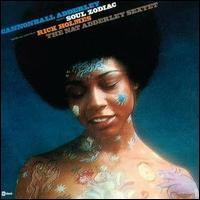 Rick Holmes & The Nat Adderley Sextet
Rick Holmes & The Nat Adderley Sextet Soul Zodiac
Capitol, 1972
This is one of two albums that were produced by David Axelrod in 1972 featuring Rick Holmes and Nat Adderley's band. Capitol released them as part of a Cannonball Adderley Presents series. The other one is Soul Of The Bible. I heard that first and I loved it. Then I discovered Soul Zodiac. It's so psychedelic, with a separate track for each star sign and Rick Holmes narrating over the music. I love the expansive expression and intent of both records.
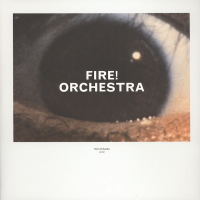 Fire! Orchestra
Fire! Orchestra Enter
Rune Grammofon, 2014
This has a large ensemble sound and there's something about the way the Fire! Orchestra horns, and especially Mats Gustaffson's tenor, are so fierce and raucous but also mixed under the vocal lines. It's powerful but sensitive at the same time. The two singers emote strongly and the way it's produced with this insane playing underneath them, I just love that combination. Really exciting. It goes back to what I was saying about the physicality of sound.
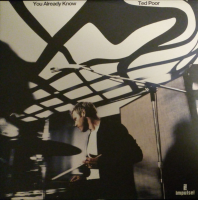 Ted Poor
Ted Poor You Already Know
Impulse!, 2020
Ted Poor is a drummer and this record is mainly just him and alto saxophonist Andrew D'Angelo. I love D'Angelo's tone and I love the spaciousness of the production. The sound is just spot on. I never get tired of it and there are beautiful melodies. It's like a delicious meal. It's a wonderfully understated record.
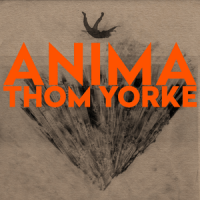 Thom Yorke
Thom Yorke Anima
XL, 2019
Matt and I were listening to this record constantly while we were driving around on tour in 2019, the last tour we did before the pandemic. We loved the electronic sounds, the bubbling underbelly of sound. It sounds very dreamlike.
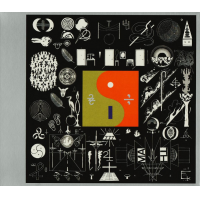 Bon Iver
Bon Iver 22, A Million
Jagjaguwar, 2016
This is another dreamlike record. It's kind of chopped up fragments of sound, a collage. Sometimes at night I get these auditory dreams going on in my head, combinations of sound bites and conversations. It feels like surfing the stations on the radio. Listening to this record kind of feels the same. I love the atmosphere Yorke has created on it.
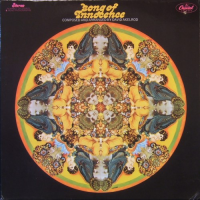 David Axelrod
David Axelrod Song Of Innocence
Capitol, 1968
I love the way this goes to and fro between really, really sparse and incredibly expansive. You hear a single instrument playing a melody then a full orchestral arrangement of it. It still feels like a modern record and was definitely an influence on Nature Will Take Care Of You.
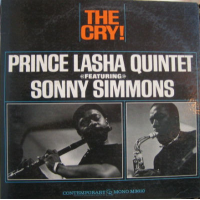 Prince Lasha Quintet featuring Sonny Simmons
Prince Lasha Quintet featuring Sonny Simmons The Cry!
Contemporary, 1963
The main thing for me is the way Sonny Simmons plays on this. It's in the Ornette Coleman field. I just love the sound of his horn. It cuts through and it makes me want to dance around the room, which not all jazz records do. It's got that wonderful combination of groove and melodic improvisation with a really sweet tone that also now and again branches out into a biting sound. It's the combination of sweet and sour that I love.
Tags
About Andrew Neil Hayes
Instrument: Saxophone, tenor
PREVIOUS / NEXT
Support All About Jazz
 All About Jazz has been a pillar of jazz since 1995, championing it as an art form and, more importantly, supporting the musicians who make it. Our enduring commitment has made "AAJ" one of the most culturally important websites of its kind, read by hundreds of thousands of fans, musicians and industry figures every month.
All About Jazz has been a pillar of jazz since 1995, championing it as an art form and, more importantly, supporting the musicians who make it. Our enduring commitment has made "AAJ" one of the most culturally important websites of its kind, read by hundreds of thousands of fans, musicians and industry figures every month.

























